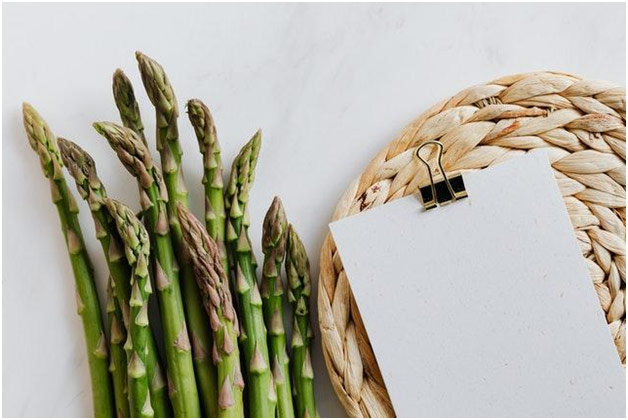
By Cassandra Rosas from Porch.com
Living a vegan and cruelty-free lifestyle requires dedication and commitment, but it can have a significant positive impact on our world. Animals have been used as a resource for human consumption for centuries, but it’s often to their detriment. If you’ve been thinking about making the switch to a vegan lifestyle at home, there are plenty of things you can do to make the transition easier. From changing your diet to choosing cruelty-free and vegan products, read on to discover some tips that will help make this an easy, seamless experience.
What is the vegan lifestyle?
The vegan lifestyle involves eating a meat-free diet that is also free of any animal byproducts. A true vegan lifestyle also means that you don’t purchase or use anything that contains animal sources. You’ll want to read all ingredients and material labels carefully to ensure that you’re not buying or consuming these products. People who choose to live this way do so because they truly care about the welfare of animals and the environment and some people also for health reasons. Whatever the reason, it requires a serious commitment to changing your habits including the foods you eat, the clothes you wear, and the way you live your life as a whole.
What is the difference between vegan and cruelty-free?
The terms vegan and cruelty-free are often interchangeable, but they’re not exactly the same. Vegan means that you won’t eat or buy anything that contains any animal by-products whatsoever. Cruelty-free means that you only purchase products that are not tested on animals. However, it doesn’t necessarily mean that the items you eat or buy don’t contain any trace of animal sources. Buying cruelty-free products is important to avoid animal cruelty, help protect animals and support animal welfare. However, if you truly want to live a life that doesn’t involve using animals as a resource, then a vegan home and lifestyle is the way to go. Look for vegan beauty items and other products that are certified to help you find the right ones for you.
How to transition to a vegan lifestyle and home
Transitioning to a vegan lifestyle starts at home. It’s crucial to change your mindset before you begin to adopt new habits and buy new products. Once you decide that the vegan lifestyle is right for you, it’s time to start making changes in the things you eat, buy, and use. There are many things you can change at home to help turn your space and your life into a vegan, eco-friendly one. Here are some tips and helpful guidance for each part of your home, so you can make the switch.
Kitchen
Going vegan starts in the kitchen and your diet. Keep these tips in mind to help you start your vegan journey.
- Pantry: Stock your vegan pantry with staple vegan foods like beans, grains, tofu, tempeh, nuts, seeds, and dried fruits. Switch from cow’s milk to seed and nut-based or vegetable-based milk and use natural sweeteners like organic agave and maple syrup. Avoid foods with processed ingredients and be sure to avoid anything that contains palm oil, which has major detrimental impacts on the environment and animals. Look for pantry-staple products that come from natural sources and don’t include anything that comes from animals to ensure that your pantry contains only vegan items.
- Fridge: Instead of processed and frozen foods, fill your refrigerator with fresh organic fruits and vegetables. Look for plant-based meat and dairy alternatives. You can find a range of delicious options for burgers, sausages, deli slices, chorizo, and more that are made using plants instead of actual meat. Always read ingredient labels carefully and source your food from local farms whenever possible.
Bathroom
The products in your bathroom may be full of animal-based or toxic ingredients. Make the switch to using vegan skincare, beauty, and personal products. Here are some tips to help you know what to look for when buying new products for your bathroom.
- Ingredients to avoid: Don’t purchase anything that contains ingredients like collagen, squalane, milk, honey, lanolin, or beeswax. Collagen is a protein that mostly comes from animal bones and skin. Squalane comes from shark liver oil, however, there are ways to find vegan sources of this ingredient, so check with the product’s manufacturer to confirm. Of course, milk, honey, and beeswax come directly from animals so they should always be avoided. Lanolin comes from sheep’s wool and should also be avoided when shopping for beauty, skincare, and personal care products.
- Leaping Bunny Certification: When purchasing vegan beauty and skincare products, look for the Leaping Bunny symbol. This important program ensures that all products bearing its symbol are completely cruelty-free and that they don’t involve animal testing or contain ingredients from third parties that perform animal testing.
- PETA’s Cruelty-Free List: The organization known as PETA (People for the Ethical Treatment of Animals) offers a comprehensive list of products that are completely cruelty-free. When in doubt, refer to their guide to help you find the right products for your beauty and skincare routine.
Home Décor and Bedroom
It’s easy to choose vegan décor and products for your bedroom once you know what to look for and what to avoid.
- Vegan materials to look for: Seek organic and sustainable materials for furniture, pillows, blankets, rugs, comforters, clothing, shoes, and bags. Materials like linen, organic cotton, bamboo, faux fur, and faux vegan leather are all excellent choices. Natural jute, sisal, and hemp make excellent rugs and handbags and are obtained from sustainable, eco-friendly sources. You can also update your home with more eco-friendly flooring made of bamboo or use kitchen utensils and plates made of bamboo. Avoid using single-use bottles made of harmful plastic and try a glass water bottle or a reusable stainless steel coffee tumbler instead.
- Materials to avoid: Unfortunately, many home products are manufactured with some form of animal source. Avoid purchasing or using home products that contain wool, leather, silk, animal feathers, or fur. Don’t buy down pillows or comforters which are made using the feathers of birds. Try upholstered furniture made using soft fabrics like organic cotton or bamboo fibers. Always do your research before buying any new items for your home to confirm that they’re made in a safe, sustainable way without the use of animal products. A reclaimed wood piece of furniture is a great option that helps limit things like deforestation.
General Household
Having a clean home is important, but there are some general household cleaners that contain dangerous chemicals, harsh ingredients, and even some with animal by-products. Keep these tips in mind to help you choose safer, more eco-friendly vegan cleaning products.
- Dishwasher detergent and dish soap: Look for dishwasher and dish-cleaning detergents that contain plant-based ingredients. Anything certified as being 100% organic and vegan is a great choice. Avoid purchasing detergents with anything that is not biodegradable whenever possible. Purchase dish detergents that come in a refillable container to reduce waste and trash and verify that they are palm oil-free.
- Laundry soap: Many brands are shifting toward offering more vegan and eco-friendly laundry soaps. You can find a variety of plant-based laundry detergents online and at many major retailers and grocery stores. Another easy way to choose vegan laundry soap is to make it yourself using safe, eco-friendly ingredients like baking soda and organic essential oils. Soap nuts are another great option and they come from natural resources to keep your clothes and our waterways nice and clean.
- Fabric softener: One of the easiest ways to avoid using harmful fabric softener is to look for dryer sheets made of biodegradable plant-based fibers like organic bamboo or cotton. Avoid using wool dryer balls since they’re made from animal sources. When purchasing store-bought fabric softener, always confirm that it’s vegan certified.
- Multipurpose cleaner: It’s easy to make your own safe household cleaner using a mixture of water, baking soda, and vinegar. Not only does this save you money, but it’s an effective way to clean surfaces without purchasing items that contain animal-based or harmful ingredients.
- Scrubbers and sponges: Look for plant-based sponges that are reusable rather than those made of foam and other synthetic materials. You can also rip up old clothing or sheets to use them as washable cleaning cloths. Many companies make dish scrubbers and other products with bamboo handles and replaceable scrubber heads to help you reduce waste.
From your daily diet and beauty products to all of the things you use at home every day, it’s easy to make the switch to a vegan and cruelty-free lifestyle with some simple changes. Keep these tips in mind to help you make the transition in every aspect of your life and home. Over time, you’ll find that living and following a true vegan lifestyle is easy and enjoyable. It’s also the best way to help protect the animals that share our environment and be more eco-conscious.
Originally posted on Porch.com




